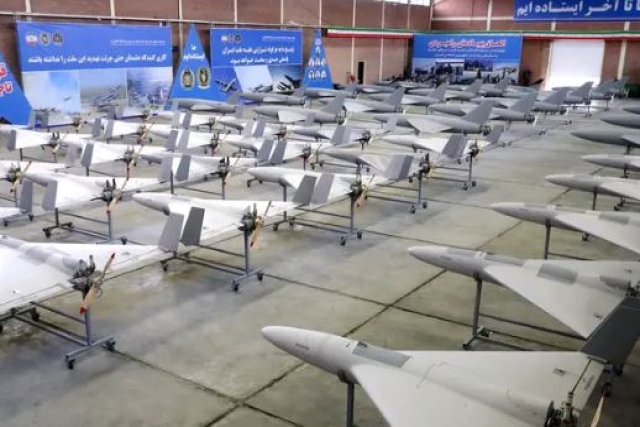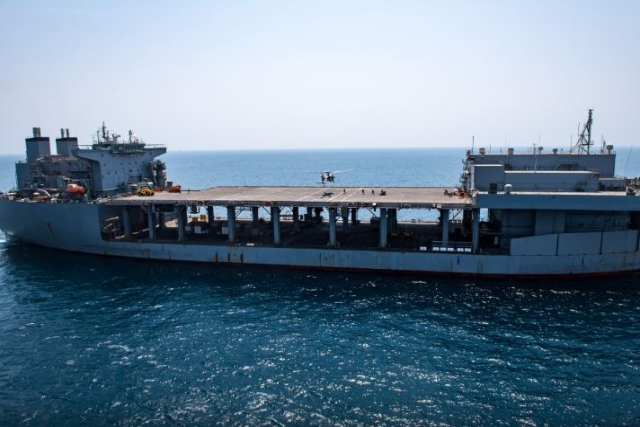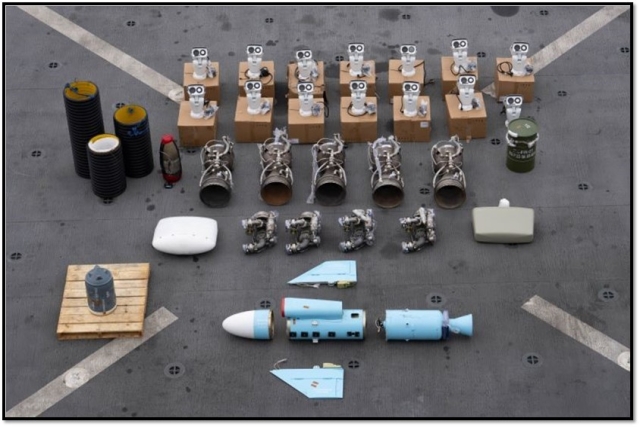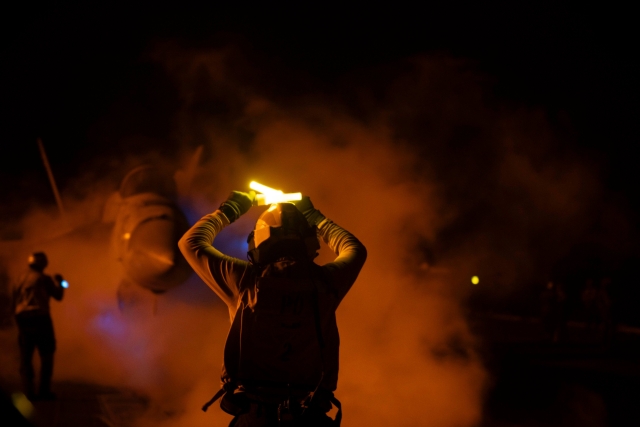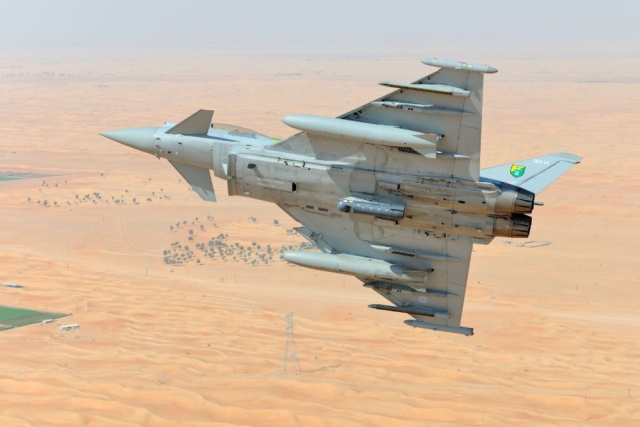Six Houthi Missiles Target 2 Ships in Red Sea, One Hit
Houthis are carrying out these attacks "in solidarity with Palestinians" amid the Israel-Hamas conflict.
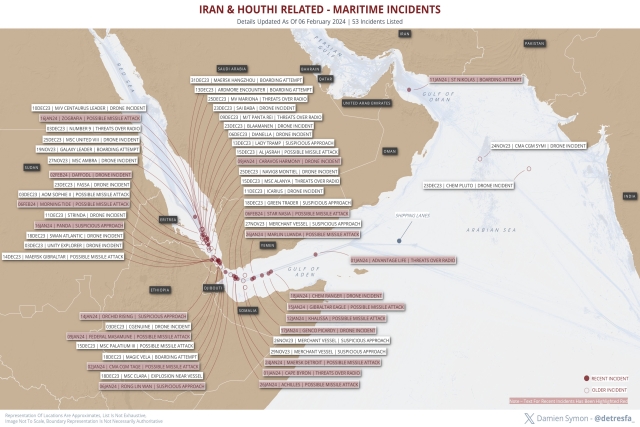
In a brazen attack early on February 6, Iranian-backed Houthi militants fired six anti-ship ballistic missiles (ASBM) from Yemen, targeting vessels in the Southern Red Sea and the Gulf of Aden.
The official statement from the U.S. Central Command (CENTCOM) revealed that the attack took place between approximately 1:45 a.m. and 4:30 p.m. (Arabian Standard Time).
The primary target was the M/V Star Nasia, a Marshall Islands-flagged, Greek-owned bulk carrier transiting the Gulf of Aden. An explosion near the ship at around 3:20 a.m. caused minor damage, but no injuries were reported. The USS Laboon intercepted and shot down a third anti-ship ballistic missile at 4:30 p.m.
The remaining three ASBMs were aimed at the M/V Morning Tide, a Barbados-flagged, UK-owned cargo ship in the Southern Red Sea. Fortunately, all three missiles impacted the water near the ship without causing damage.
Houthi spokesman Yahya Saree said the first attack "targeted the American ship Star Nasia, while the other targeted the British ship Morning Tide". He added that the Houthis "will carry out more military operations against all hostile American-British targets" in self-defense.
The U.S. military's Central Command stated that the Houthi militants fired three missiles at the Star Nasia and three at the Morning Tide.
Saree claimed that these attacks were in solidarity with Palestinians amid the Israel-Hamas conflict.
The incidents have prompted concerns about trade disruption in the region, with some shipping companies choosing to detour around southern Africa to avoid the Red Sea.
Houthi attacks have forced shipping companies to divert around southern Africa to avoid the Red Sea, a critical route handling about 12% of global maritime trade. Most trade between Asia and Europe uses the Red Sea and Suez Canal, but data from the International Monetary Fund's PortWatch platform reveals a 37% drop in Suez Canal transit volume by January 16 compared to the same period last year.
